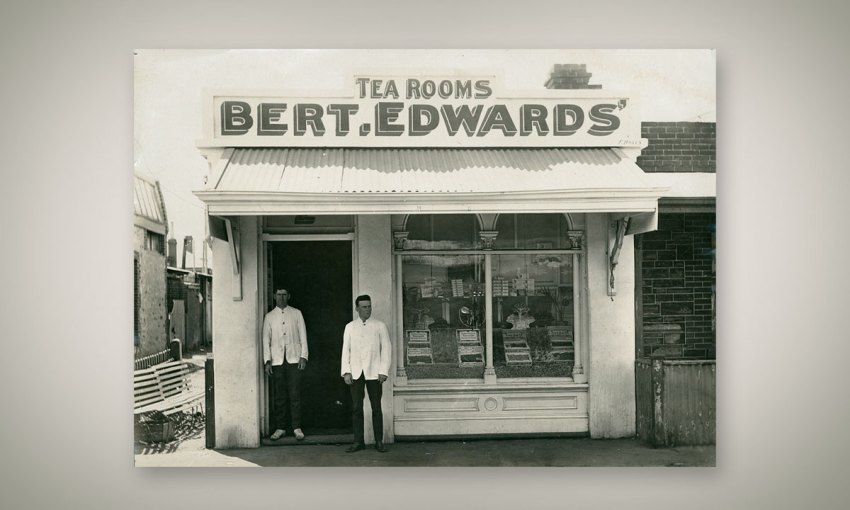Adelaide City Council will consider marking the life and achievements of a former councillor who's life and philanthropic work was notable to Adelaide’s LGBTQIA+ community.
Council pride on show through Bert Edwards memorial
At Town Hall last week, Adelaide City Council unanimously moved to investigate options to commemorate former Councillor Albert ‘Bert’ Edwards.
One idea was to install a historical plaque memorialising his life and achievements at his grave in the West Terrace Cemetery.
Edwards is currently recognised in the naming of Edwards Park, and Albert Edwards Court: the name given to a South Australian Housing Trust development in Maud Street.
Part of the City Council’s commitment includes engaging with the Housing Authority to discuss replacing the sign for Albert Edwards Court, which is missing. They will also consider alternative signage in Edwards Park.
New here? Sign up to receive the latest happenings from around our city, sent every Thursday afternoon.
Edwards was a member of South Australia’s House of Assembly from 1917 until 1931 and elected member for Grey Ward in the Adelaide City Council from 1914-1931 and again from 1948-1963. During this time, he was an advocate for protecting the park lands, campaigned against conscription, advocated for prison reform and supported the rehabilitation of prisoners.
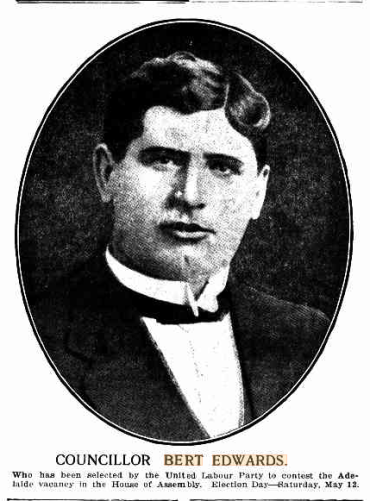
This picture: a snippet from Adelaide’s Southern Cross newspaper on April 6, 1917, announcing Bert Edwards was selected by the United Labour Party to contest the Adelaide vacancy in the House of Assembly. Sourced via Trove.
Queer activist Will Sergeant spoke at the council meeting on Tuesday, February 13 in support of the move to have a historical marker at Edwards’s grave, or a history trail to feature significant sites in the city which he says would be a “fitting tribute to the man affectionately known as King of the West End”.
“Bert was a forceful character and inspired great affection, particularly amongst the ordinary folk of the West End,” Sergeant, who performs as Dr Gertrude Glossip, said.
In 1931, Edwards was charged with “unnatural offences”; having sex with another male. He was sentenced to five years in jail with hard labour and served two and a half years before being released on parole for good behaviour, which Sergeant said was a beneficiary of the parole system implemented while Bert was a politician.
“He believed that he’d been set up by political adversaries stating, ‘my enemies have succeeded, but with loaded dice’,” he said.
Before his arrest, Edwards became a successful businessman operating tea rooms. He was a publican of many venues including the Duke of Brunswick and the Grand Chancellor Hotel in Adelaide, the British Lion Hotel in Hindmarsh and Hotel Victor in Victor Harbor. Upon his release from prison, he continued hotelling.
Edwards was philanthropic with his wealth, and in 1961 he purchased property in Whitmore Square as accommodation for destitute men, and in 1963 the adjoining property which he used to house discharged prisoners.
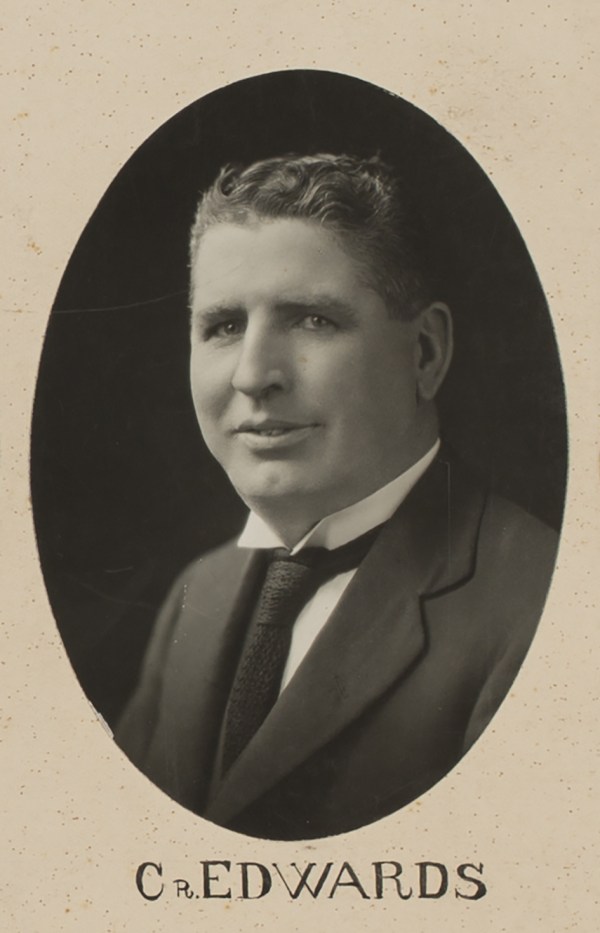
Councillor Bert Edwards. This picture: supplied by Adelaide City Council
It was 12 years after Edwards death when homosexuality was fully decriminalised in South Australia in 1975 – the first Australian state to do so.
“He died a wealthy man and stipulated that the bulk of his estate should be used in giving happiness and education and opportunity of advancement in life to children who have been inmates of an orphanage of a public or private institution for delinquent children,” Sergeant said.
“I, with my alter ego Dr Gertrude Glossip, and the late Ian Purcell AM were captivated by this outstanding man, his good works, his downfall and his resurgence.”
Sergeant and Purcell honoured Edwards’ life in their 2002 Feast Festival history walk, aptly named “Bert’s Backyard: Sex and Death in the City’s Southwest”.
“We loved a catchy title,” Sergeant said of the event.
The trailblazers’ life has been documented in Patricia Sumerling’s biography, Bert Edwards: King of The West End as well as Gertrude Glossip’s own book Queen of the Walk.
Councillor David Elliott said Queen of the Walk is “absolutely critical reading for understanding our city through a different lens as a queer person”.
“I absolutely recommended Queen of the Walk, it sits next to my bed, I do some casual reading with it and I am yet to finish, but I love the conversational tone,” he said.
About the move to investigate ways to commemorate Edwards’ legacy, Elliott commended the motion.
“We do stand on the shoulders of giants in this place. And I am also proud to be an openly queer person in this chamber as a result of his legacy,” he said.
Deputy Lord Mayor Keiran Snape, who brought the motion before Council, said there wasn’t much he could say better than Sergeant, but that Edwards Bert was “a true champion for the poor and the downtrodden”.
“Bert Edwards quite frankly paved the way, I would suggest for many that followed, including openly gay councillors which I count myself among,” Snape said.
Queen of the Walk covers the murder of Dr George Duncan, some secrets of the Adelaide parklands, the life and work of Bert Edwards, queer café and bar culture over the decades, and more.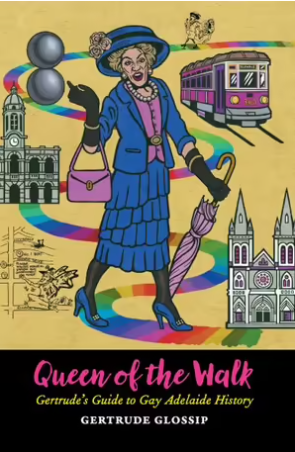
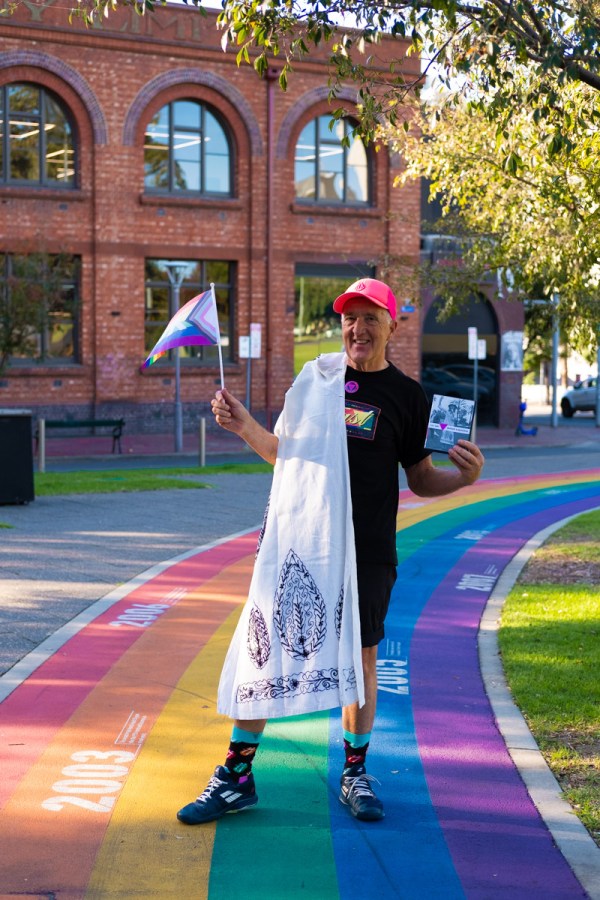
Will Sergeant is known for his advocacy work in Adelaide’s LGBTQIA+ community. Here Will poses with his pride memorabilia, including the caftan he wore in the Adelaide parade in 1973. This picture: Claudia Dichiera



